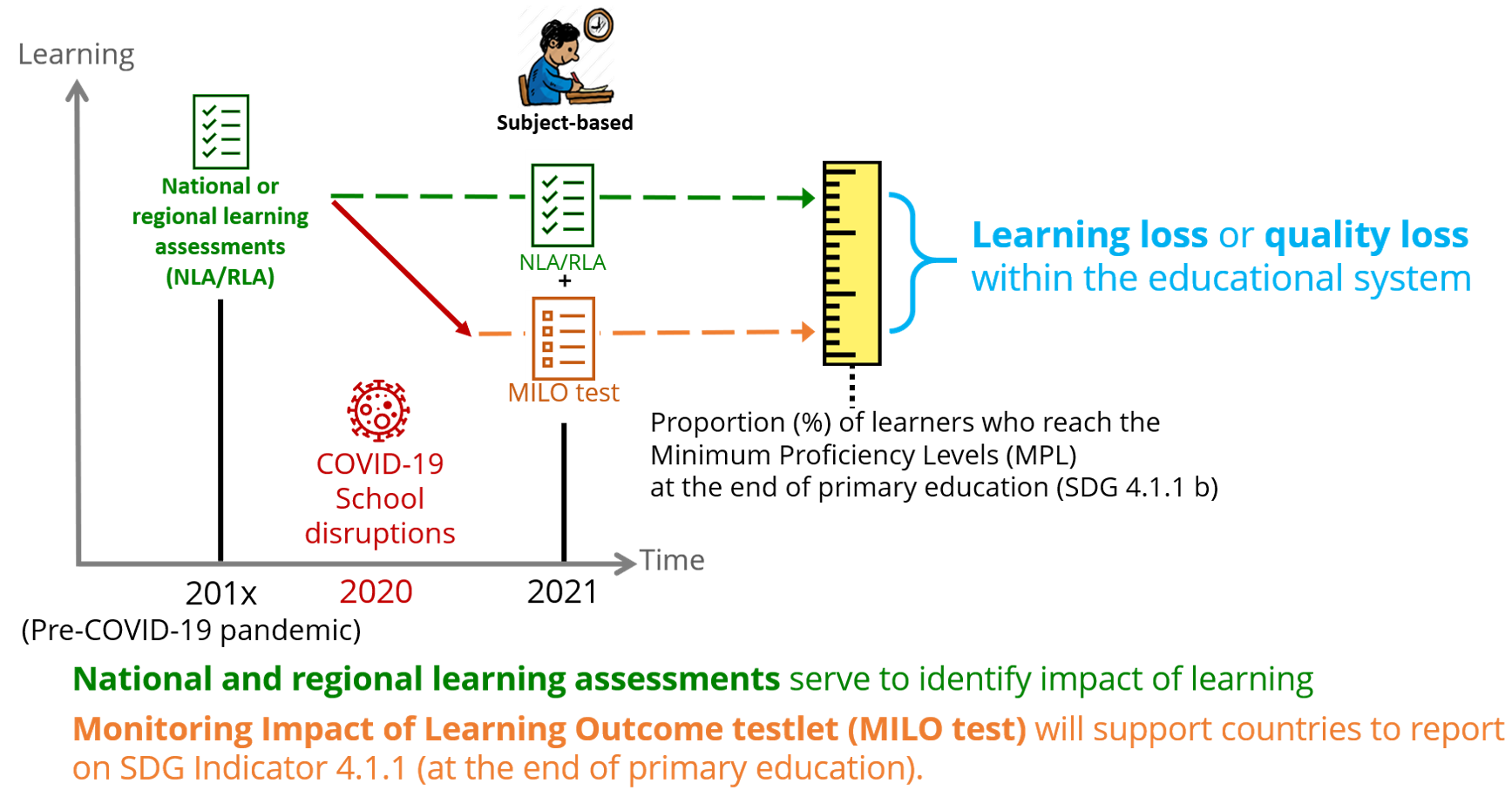COVID-19: Monitoring Impacts on Learning Outcomes (MILO)
Learn more about the MILO project by visiting: https://milo.uis.unesco.org/
The COVID-19 pandemic has severely impacted all areas of life. An increased reliance on parent-led and self-guided learning, staggered school attendance and the lack of adequate home educational resources have caused substantial disruptions to learning for many children and are exacerbating learning inequities.
The ambitious education goals of the 2030 Sustainable Development Agenda are threatened by nationwide and localised school closures around the world. In response to the pandemic, governments around the world have put measures in place to mitigate the impact of school closures, and to facilitate the continuity of education for all through remote learning.
This study will examine reading and mathematics outcomes in 6 countries in Africa, in order to determine the impact of COVID-19 on learning and to evaluate the effectiveness of distance learning mechanisms utilised during school closures.
The COVID-19: Monitoring the Impacts on Learning Outcomes (MILO) project aims to measure learning outcomes in 6 countries in Africa, in order to analyse the long-term impact of COVID-19 on learning and to evaluate the effectiveness of distance learning mechanisms utilised during school closures. In addition, this project will develop the capacity of countries to monitor learning after the crisis.
The four overarching goals of the project are to:
- Evaluate the impact of COVID-19 on learning outcomes and measure the learning loss by reporting against SDG indicator 4.1.1 b)
- Identify the impact of different distance learning mechanisms put in place to remediate the learning disruption generated by COVID-19
- Expand the UIS bank of items for primary education
- Generate a toolkit so that assessment results can be scaled to international benchmarks, reporting against SDG 4.1.1 b)
The focus of this study is on students at the end of primary school. The benchmark that will be used to indicate learning outcomes in this study is aligned with Sustainable Development Goal (SDG) indicator 4.1.1(b):
Proportion of children and young learners … at the end of primary … achieving at least a minimum proficiency level in (i) reading and (ii) mathematics, by sex
This project will further provide a toolkit to participating countries that enables them to monitor learning outcomes against SDG indicator 4.1.1(b) after the crisis.
The main aim of this study is to determine the impact of COVID-19 on learning outcomes at the end of primary schooling. To quantify current learning outcomes an assessment of reading and mathematics will be administered to students at the end of primary school in 2021. To quantify the impact on learning outcomes, data on learning outcomes prior to the pandemic must be available for comparison. The knowledge about current and prior learning outcomes will also lay the foundation for the participating countries to compare future learning outcomes. In the ideal situation, prior, current and future data can be used to determine learning loss due to COVID-19 and learning recovery following COVID-19 - see the figure below for an illustration of the study.
The benchmark that will be used to quantify learning outcomes will be the proportion of students in the end of primary population, in each country, that meet the Minimum Proficiency Levels (MPL) referred to in SDG indicator 4.1.1(b) and described in Refinement of minimum proficiency levels by ACER-GEM (2020). The link to this benchmark will be established in the 2021 assessments as part of this study and will be retrospectively applied to prior assessment results.
Read more about the MILO study in the Study Design: COVID-19 Monitoring Impacts on Learning Outcomes (MILO).
COVID-19 Monitoring Impacts on Learning Outcomes (MILO)

Six countries participated in the MILO Project by collecting evidence on learning in order to evaluate the effectiveness of the measures taken to continue learning during school closures, and to develop national capacity to monitor learning after the crisis.
 |
 |
 |
 |
 |
 |
| Burundi | Burkina Faso | Cote d'Ivoire | Senegal | Zambia | Kenya |